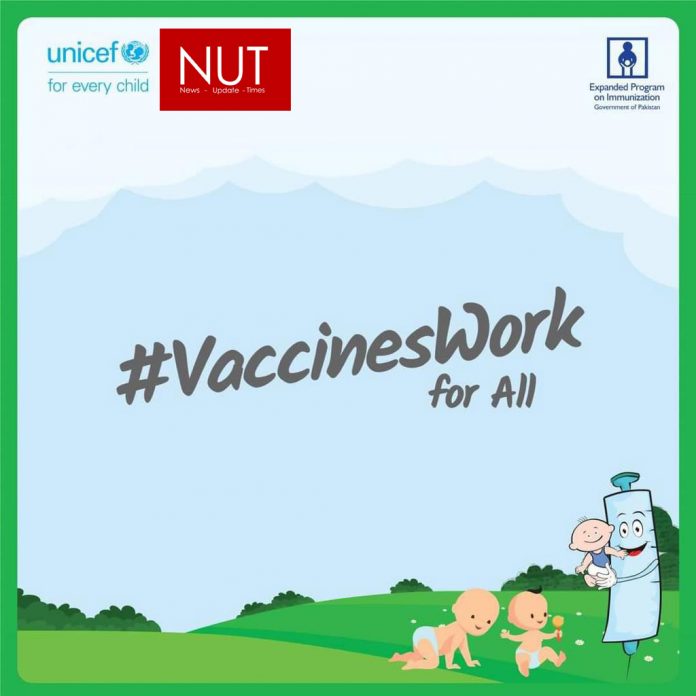Pakistan has seen a significant increase in confirmed cases of Covid-19 cases. In April 2020, two-thirds of children missed out on routine immunisation, increasing risk of disease outbreak. Almost 40 million children missed polio drops as the nationwide polio campaign in April had to be postponed. Response to the pandemic has stretched the health system in the country. An overburdened system could lead to a total collapse resulting in increased outbreaks.
To avoid this, sustained access to essential health services is imperative. A catch-up campaign to reach children missed due to suspension of immunisation during the lockdown period is being planned. The Provincial Expanded Programme for Immunisation has started outreach services on immunisation with support from partners. The government’s development partners including Unicef are supporting continuity of immunisations services for children and women.
All provinces have shifted the immunisation budget from development to recurrent ensuring sustainability of funding for immunisation programmes. It would also contribute towards achieving the target for essential immunisation which will reduce morbidity and mortality from vaccine-preventable diseases, writes Dr. Shahnawaz Hussain. The writer is a health care advocate and blogger based in Lahore, Pakistan.
Government commitment and leadership are essential to put national programmes for public health back on track. Unicef has supported the MNHSRC to procure PPE worth $1.5 million with funding from World Bank and Asian Development Bank. Gavi, the Vaccine Alliance has approved procurement of PPE worth $5.5m. Surgical gloves, masks, and caps worth $854,121.69 are being procured by UnICEf from its own resources. The MNHS RC and UniceF are jointly leading the Risk Communication and Community Engagement Task Force for raising public awareness around the transmission of Covid-19 and its prevention.










